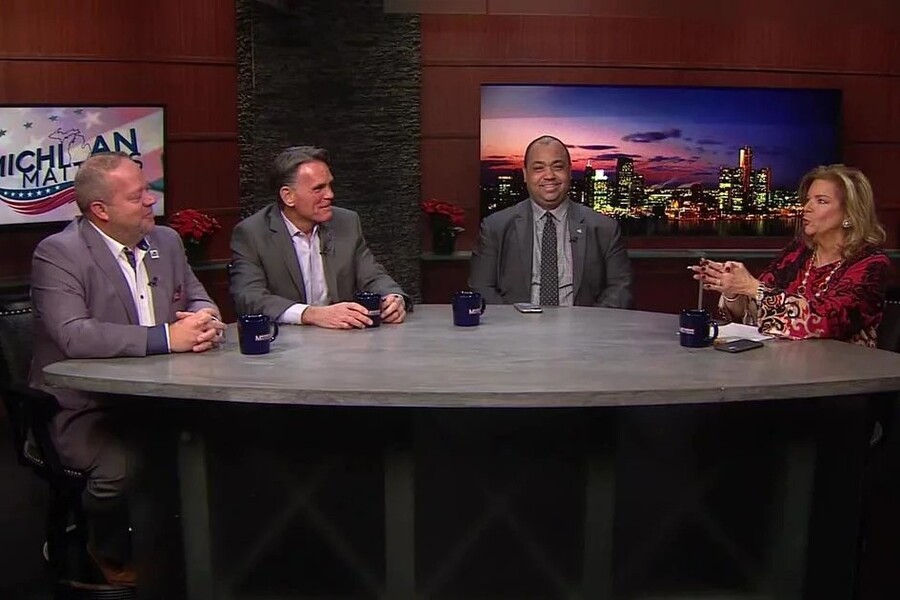Michigan’s political scene is transforming as the state reflects on a turbulent 2024 and anticipates the opportunities and challenges of the coming year. Key political figures from Michigan joined CBS Detroit’s Michigan Matters to discuss the events of the past year and offer their perspectives on the future. Rochester Hills Mayor Bryan Barnett, Detroit City Councilman Coleman Young II, and Macomb County Executive Mark Hackel addressed critical issues, their own ambitions, and the evolving dynamics of Michigan’s political landscape.
The past year was marked by significant political and social developments, both nationally and locally, that shaped Michigan’s trajectory. Mayor Bryan Barnett, who leads the politically diverse city of Rochester Hills, shared insights into the challenges of governing a city with a mix of Democratic and Republican voters. As a Republican mayor in what is often considered a “purple” city, Barnett has worked to balance priorities and foster bipartisan cooperation. Reflecting on his recent attendance at President Joe Biden’s final White House Christmas Party, Barnett described the event as a poignant moment underscoring the importance of unity amidst political divides.
For Macomb County Executive Mark Hackel, 2024 highlighted the critical role of federal support in areas such as national defense and economic development. Macomb County is home to Selfridge Air National Guard Base and several defense contractors, making federal funding a cornerstone of the region’s economy. Hackel discussed the implications of the incoming Trump administration, expressing cautious optimism about the potential impact on defense spending and homeland security initiatives. Hackel’s focus on leveraging federal resources underscores the interconnectedness of local and national priorities in shaping Michigan’s economic stability.
Detroit City Councilman Coleman Young II turned his attention to the shifting dynamics in Detroit’s political sphere, particularly in light of Mayor Mike Duggan’s surprising announcement that he will not seek re-election. Duggan’s decision to leave the Democratic Party and run for Michigan governor as an independent has sent shockwaves through the state’s political community. Young criticized the move, suggesting it reflects broader challenges within the Democratic Party. As a prominent figure in Detroit’s political landscape, Young has positioned himself as a potential candidate for mayor in 2025, advocating for policies that address economic inequality and infrastructure development.
One of the most pressing issues for Detroit is the future of the Renaissance Center, a landmark structure that has become a focal point for redevelopment discussions. Built during the tenure of Young’s late father, former Mayor Coleman A. Young, the RenCen symbolizes Detroit’s aspirations for economic revival. However, its future remains uncertain as stakeholders debate whether to rehabilitate the building for modern use or demolish it if state funding cannot be secured. Young emphasized the importance of preserving the RenCen as a testament to Detroit’s resilience and a cornerstone of its economic revitalization efforts.
The conversation also turned to the personal ambitions of Michigan’s political leaders, reflecting the dynamic nature of the state’s political future. Both Barnett and Hackel hinted at potential gubernatorial runs in 2026, each citing their leadership experience as a strong foundation for statewide office. Hackel highlighted his track record in managing one of Michigan’s largest counties, while Barnett pointed to his ability to bridge partisan divides and focus on pragmatic governance. These aspirations signal a growing interest among Michigan’s local leaders in shaping the state’s broader political agenda.
As Michigan prepares for another pivotal year, the challenges ahead are multifaceted. Economic recovery, infrastructure investment, and addressing systemic disparities remain at the forefront of policy discussions. The state’s leaders must navigate these issues while contending with shifting political alliances and the need for innovative solutions to longstanding problems. Collaboration across party lines and a commitment to serving the diverse needs of Michigan’s residents will be essential in achieving these goals.
The events of 2024 underscored the importance of adaptive leadership in times of change. From navigating national policy shifts to addressing local concerns, Michigan’s political figures have demonstrated a willingness to engage in dialogue and pursue actionable solutions. As the state looks ahead to 2025 and beyond, its leaders remain focused on creating a future that reflects the values and aspirations of its communities. With continued dedication and a spirit of cooperation, Michigan is poised to overcome its challenges and build a brighter future for all.
